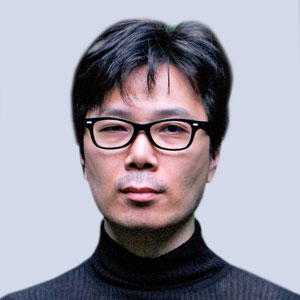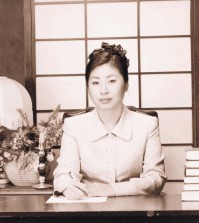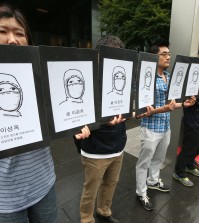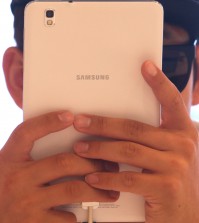- California Assembly OKs highest minimum wage in nation
- S. Korea unveils first graphic cigarette warnings
- US joins with South Korea, Japan in bid to deter North Korea
- LPGA golfer Chun In-gee finally back in action
- S. Korea won’t be top seed in final World Cup qualification round
- US men’s soccer misses 2nd straight Olympics
- US back on track in qualifying with 4-0 win over Guatemala
- High-intensity workout injuries spawn cottage industry
- CDC expands range of Zika mosquitoes into parts of Northeast
- Who knew? ‘The Walking Dead’ is helping families connect
When C.E.O.’s Embrace the Occult
By YOUNG-HA KIM
(INTERNATIONAL NEW YORK TIMES) It’s an open secret: Even now, in the 21st century, Korean executives often consult spiritual advisers before making major business decisions — decisions that can affect their employees around the world.
Last month, an appeals court upheld the four-year prison sentence of Chey Tae-won, the disgraced head of SK Group, one of the largest South Korean conglomerates, who was convicted in January of embezzling nearly 50 billion won (around $45 million) to cover losses on personal investments.
The story took a bizarre turn the night before the prison term was upheld, when Kim Won-hong, a former personal asset manager of Mr. Chey’s who worked for a subsidiary of SK, was extradited from Taiwan to South Korea to face charges for his role in the scam.
Many South Koreans believe Mr. Kim served as Mr. Chey’s fortune-teller.
It may seem absurd in an advanced capitalist country that executives seek counsel with fortune-tellers, but South Koreans have long had an intimate relationship with the occult.
Consulting a fortune-teller is common among ordinary people, who may seek advice at crucial life passages like graduation or marriage, or ask for help with depression or career troubles. Spiritual advisers tell fortunes based on the exact time of a client’s birthdate.
Many South Koreans also believe in physiognomy — the notion that a person’s personality and fate can be “read” in the shape of the eyes, nose, ears and forehead. Increasing numbers of South Koreans have been undergoing plastic surgery to change their physiognomy, particularly people in their 50s and 60s. A hit movie this fall, “Physiognomy,” capitalized on this interest.
Shamans, known locally as mudangs, offer guidance with “pungsu,” a concept similar to feng shui that considers the human relationship to nature and physical space. The position of a building in relation to mountains and rivers is seen as important, and a shaman may be consulted about the location of a house or a grave.
I sought out a fortune-teller when I was about to graduate from college. The young man, whose hair reached down to his feet, said to me: “You will live by your writing and your speech,” which turned out to be true.
He said that I was originally a tree and that an enormous boulder was trying to knock me down. The tension between tree and boulder explained my rage toward the world, he said, predicting that my anger would weaken as my tree grew. He recommended that I live near water — trees need hydration. Eventually I would become a happier, gentler person, he said, adding that I most likely preferred beer to hard liquor.
When it became known that the fortune-teller had accurately pinpointed my drinking habits, many of my friends sought him out. His predictions were less prophetic for them, and memories of our visits to him turned into a long-running joke.
But for all the popularity of spiritual advisers in South Korea, it still shocks to see the leaders of huge public companies relying on fortune-tellers. A shaman may advise a struggling executive to move a building’s front entrance, tapping the widespread pungsu belief that your luck depends on the direction of your house. Shamans may sit in on interviews to offer guidance on hiring. We can assume they are paid huge sums for their advice.
Mr. Chey was hardly the only executive to seek a connection to the supernatural.
When the head of the Hyundai Motor Company, Chung Mong-koo, was fighting with his younger brother Chung Mong-hun over the company’s management, he is said to have consulted a fortune-teller. Lee Byung-chull, the founder of Samsung Electronics and father of the present chairman, Lee Kun-hee, is believed to have strong faith in pungsu. (The elder Mr. Lee considered physiognomy so important that he made sure a fortune-teller, or “face reader,” was present at employment interviews.) LG Group is believed to have considered pungsu when determining the structure of a new building.
It is perhaps not unusual then that Mr. Chey also turned to a fortune-teller. When he was handed the leadership of SK after his father’s death in 1998, he was too cash poor to pay his inheritance taxes. Mr. Kim was entrusted to invest Mr. Chey’s personal money because of his connection to a former SK executive who was also a close family friend and mentor of Mr. Chey’s.
At first, the gambit paid off. Mr. Kim reportedly tripled the value of Mr. Chey’s investments, supporting the view that Mr. Kim was a prophet.
But Mr. Kim’s financial magic didn’t last long. The investments turned sour in the wake of the 2008 financial crisis, dragging Mr. Chey deeper into debt. Friction developed between the two. Mr. Kim fled South Korea, apparently to avoid the inquiry into Mr. Chey’s investment losses. He’s now under investigation as an accomplice to the embezzlement.
“He was a legendary figure,” a financial analyst who refused to be named told the Korea Times, referring to Mr. Kim. “People said he had an ability to foresee the future and he was even famous as a fortune-teller when he was young.”
One wonders if Mr. Kim predicted his future would be behind bars.
Young-ha Kim is a novelist and short-story writer.This article was translated by Krys Lee from the Korean.

















